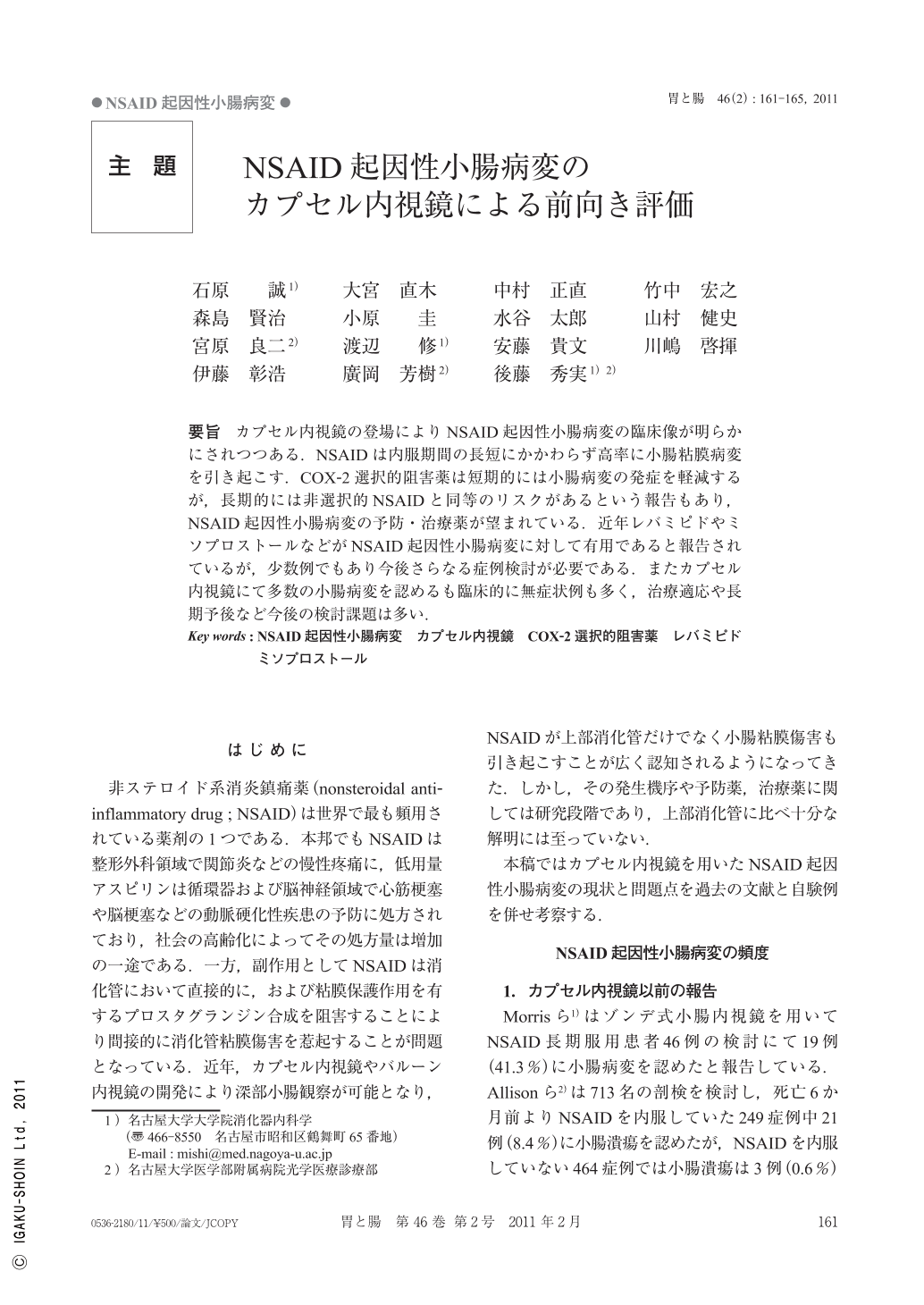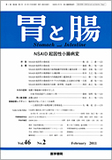Japanese
English
- 有料閲覧
- Abstract 文献概要
- 1ページ目 Look Inside
- 参考文献 Reference
要旨 カプセル内視鏡の登場によりNSAID起因性小腸病変の臨床像が明らかにされつつある.NSAIDは内服期間の長短にかかわらず高率に小腸粘膜病変を引き起こす.COX-2選択的阻害薬は短期的には小腸病変の発症を軽減するが,長期的には非選択的NSAIDと同等のリスクがあるという報告もあり,NSAID起因性小腸病変の予防・治療薬が望まれている.近年レバミピドやミソプロストールなどがNSAID起因性小腸病変に対して有用であると報告されているが,少数例でもあり今後さらなる症例検討が必要である.またカプセル内視鏡にて多数の小腸病変を認めるも臨床的に無症状例も多く,治療適応や長期予後など今後の検討課題は多い.
The clinical feature of NSAID-induced small bowel injury is clarified by capsule endoscopy. NSAID causes a high rate of small bowel injury regardless of the length of time for which it is used. COX-2 selective inhibitor reduces the appearance of small bowel injury for the short term, but it is reported that there is an equal risk in non-selective NSAID for the long term, so it is hoped that prevention and a treatment drug for NSAID-induced small bowel injury can be found. Recently, a case report shows that rebamipide and misoprostol are effective for NSAID-induced small bowel injury, but these examples are too few to reach a conclusion about their effectiveness, so we need further case studies. Moreover, there are many asymptomatic patients with small bowel injury, so there are many problems to be solved such as the target of treatment and long-term prognosis.

Copyright © 2011, Igaku-Shoin Ltd. All rights reserved.


